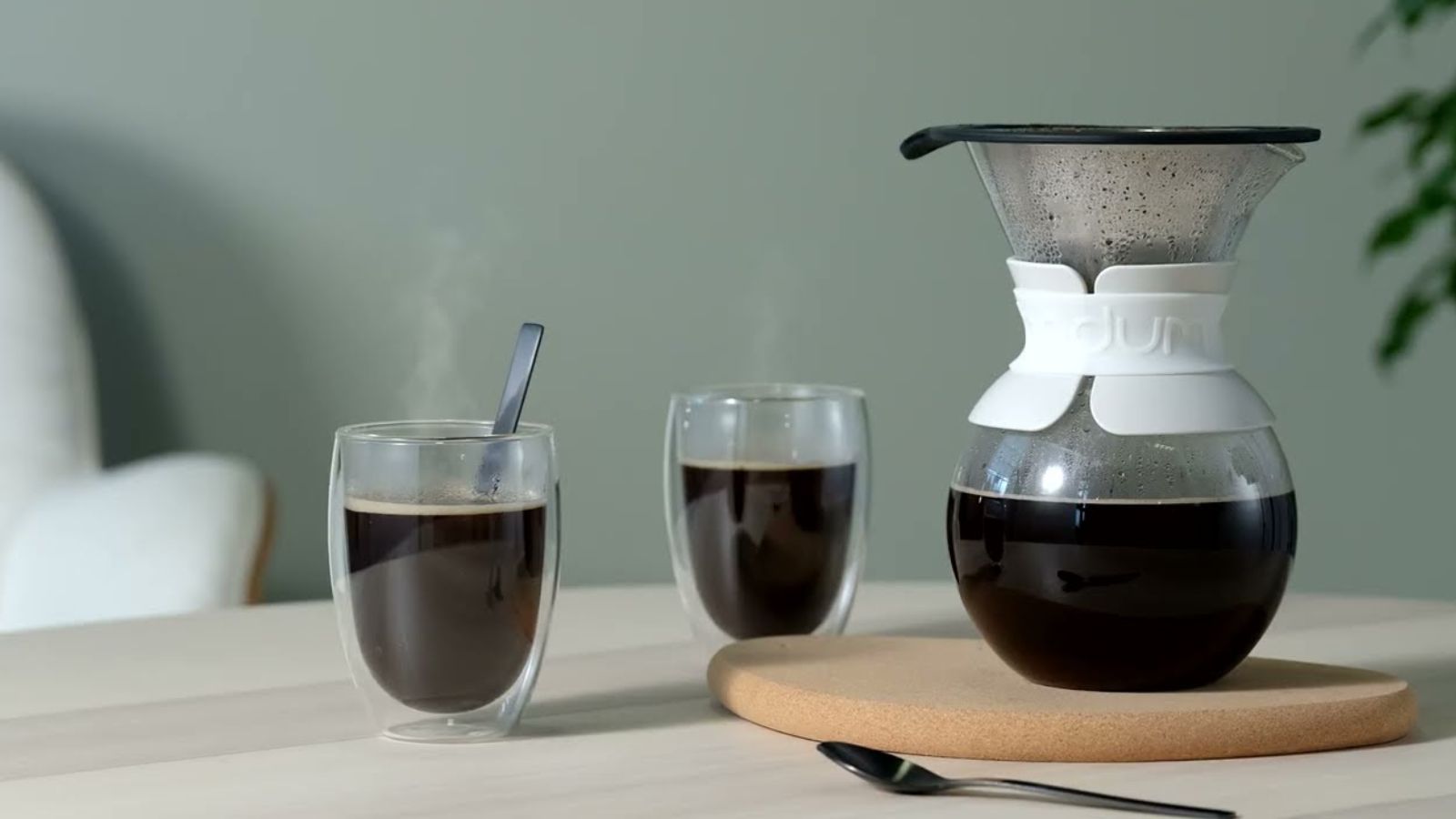
Bodum are well established as experts in the coffee market. I've loved their pour-over coffee maker for a long time, but it seems to be their best kept secret. Everyone has heard of the Bodum French press, but the Bodum pour-over deserves some more publicity.
Whilst I was testing the best pour-overs on the market, I kept coming back to Bodum's Chemex-style, big brewer. I've used it unofficially for a while, but wanted to get it tested so that we could compare it to Hario, Melitta, and Chemex for you.
I put the Bodum through its paces, testing it on single cups and big batches of coffee. If you like pour-over coffee and you need some serious capacity, this is one to consider.
Specifications

Unboxing

If you don’t already know Bodum, they’re big on three things: simplicity, value, and sustainability. The perfect example of this is how the pour-over is packaged.
The big glass body is protected with nothing but recyclable cardboard. This makes the unboxing easy and cleaning up even easier. It's easy to get brewing and there's not much in the way of boxes to dispose of.
I gave the borosilicate glass a quick tap to test out the quality and, although it’s thin, it still feels robust. The plastic sleeve is nicely tactile. The two parts are held together by a silicone fastener, which it is easy to fit and heat resistant. Bodum even throws in a neat coffee scoop, so you can measure out your coffee without needing to invest in scales.
Who would it suit?
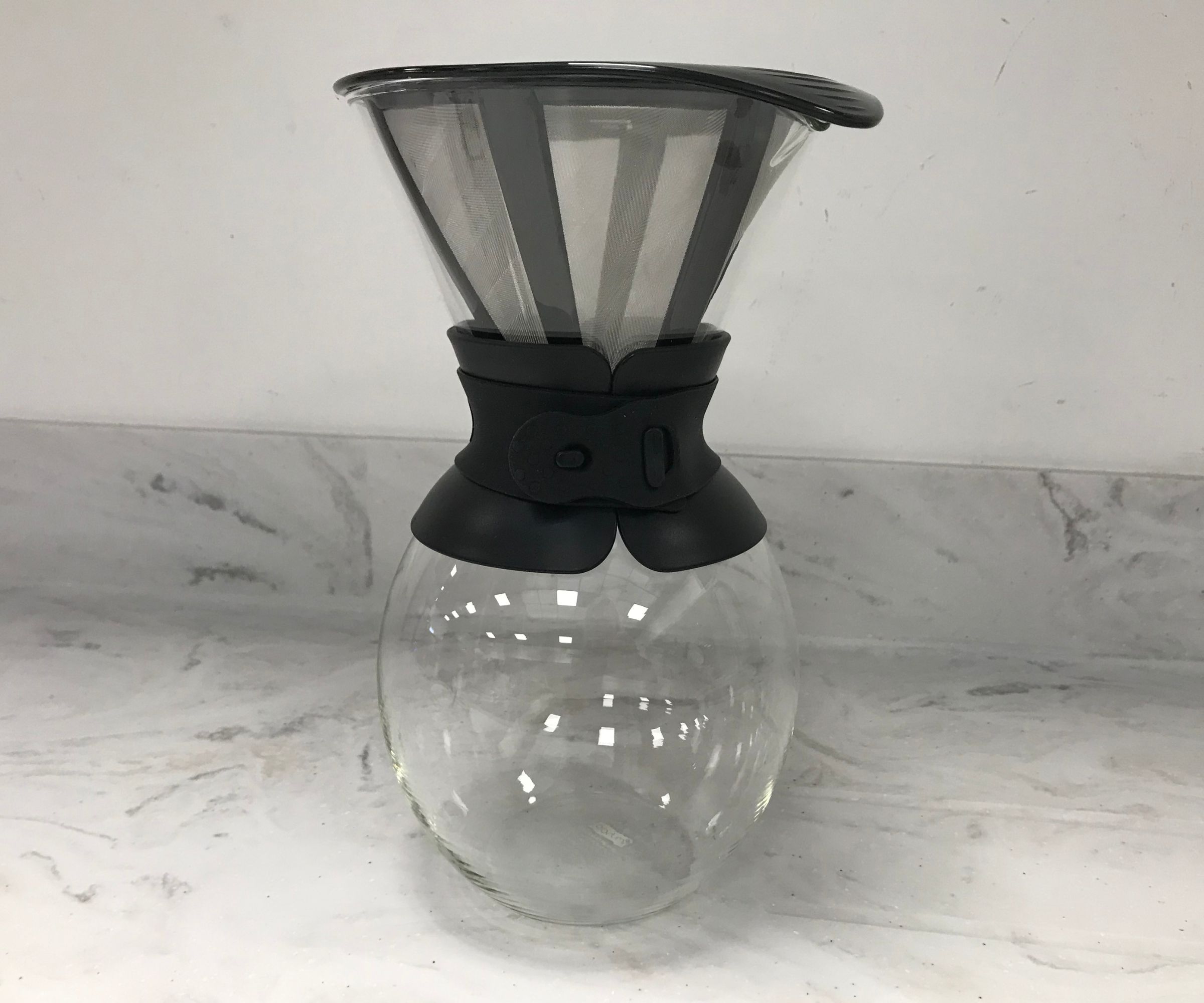
The big Bodum body is quite different from little Melitta cups and Hario brewers. That makes this a brilliant buy if you need capacity in your coffee maker. Most cups of coffee average at about 8 oz, so you could brew enough for three of you at once. I reckon this could stretch to four, which is perfect for the average family or coffee morning.
The only thing to consider when buying a larger pour-over is that you’ll either have to have large cupboards or the enthusiasm to style a coffee station around the Bodum. Whichever you choose, I like the look of this. It’s very similar to Chemex coffee makers, except it’s cheaper.
What is it like to use?
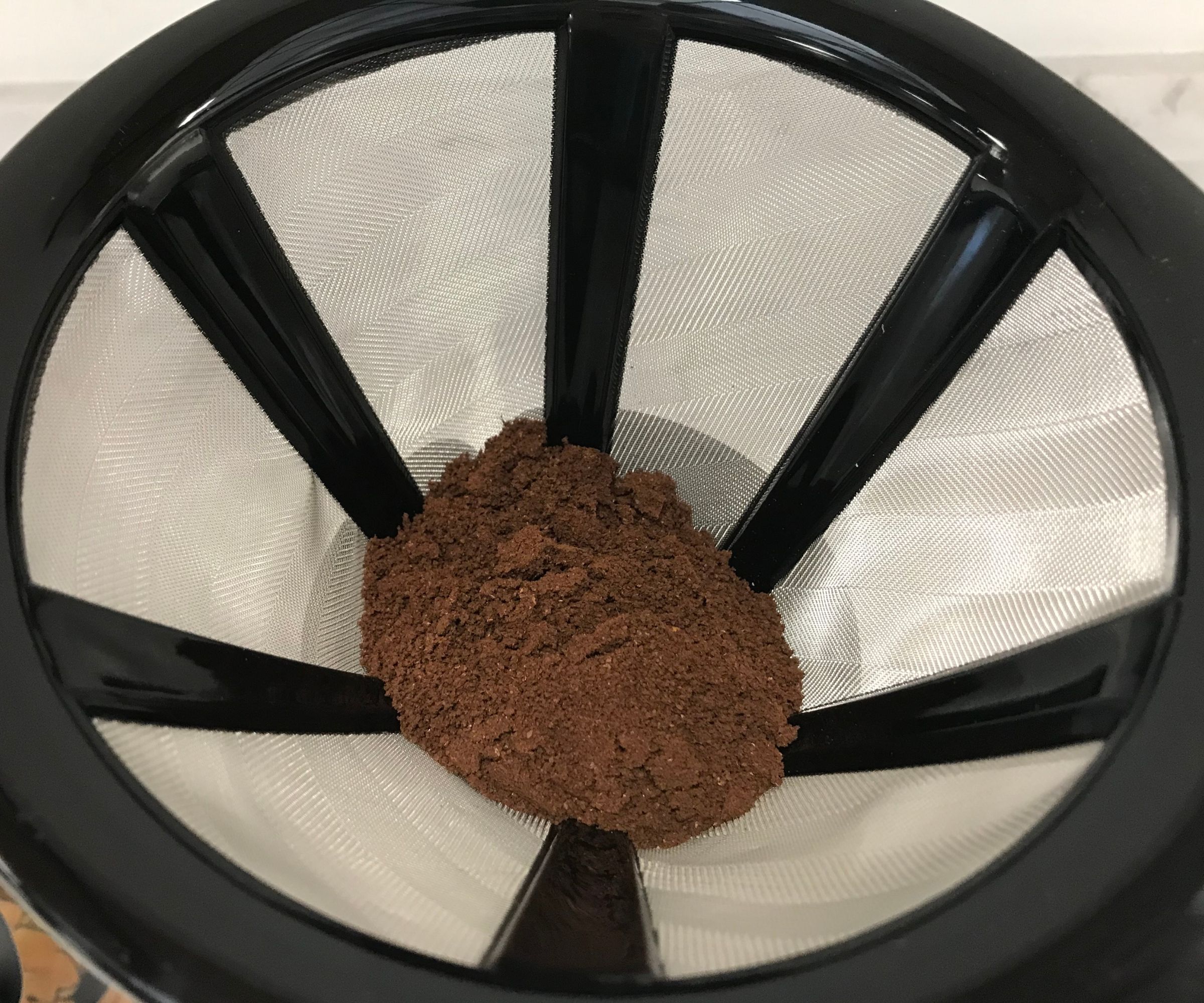
It doesn’t get more straightforward than pour-over coffee, but Bodum still included some friendly instructions to help you get started. I gave mine a quick rinse first, because I wanted to get rid of any dust or factory dirt and chemicals before I added my coffee.
From here, the brewing process is easy. Bodum includes a permanent, stainless steel filter, which I opted to use. However, you can also buy filter papers from Walmart if you want to double filter or if you prefer the taste of filter paper coffee.
I sat the filter in the brewer and, at first, tried brewing just a single cup of coffee. This called for one scoop of coffee grounds and 8 oz of water. As with all pour-overs, I used a gooseneck kettle (I have the Fellow Stagg EKG gooseneck kettle which you can pick up from Amazon) to evenly saturate my grounds. It took a few minutes for my coffee to have filtered into the carafe. The bonus of having a glass body is that you can watch the coffee brew. This meant that I knew exactly when mine was done and ready to drink: at 3 minutes and 23 seconds, which is about average for pour-overs.
My cup was smooth and light. I like mine a little stronger, so would be tempted to try a scoop and a half if you’re a specialty coffee drinker, but it was good. The best part of the whole experience was Bodum’s neat stopper that you insert into the carafe. This transforms the big, bulbous brewer into a neat pourer because it creates a spout and stream for your coffee to pour from. I didn’t spill a drop, which is highly unusual for big carafes like this.
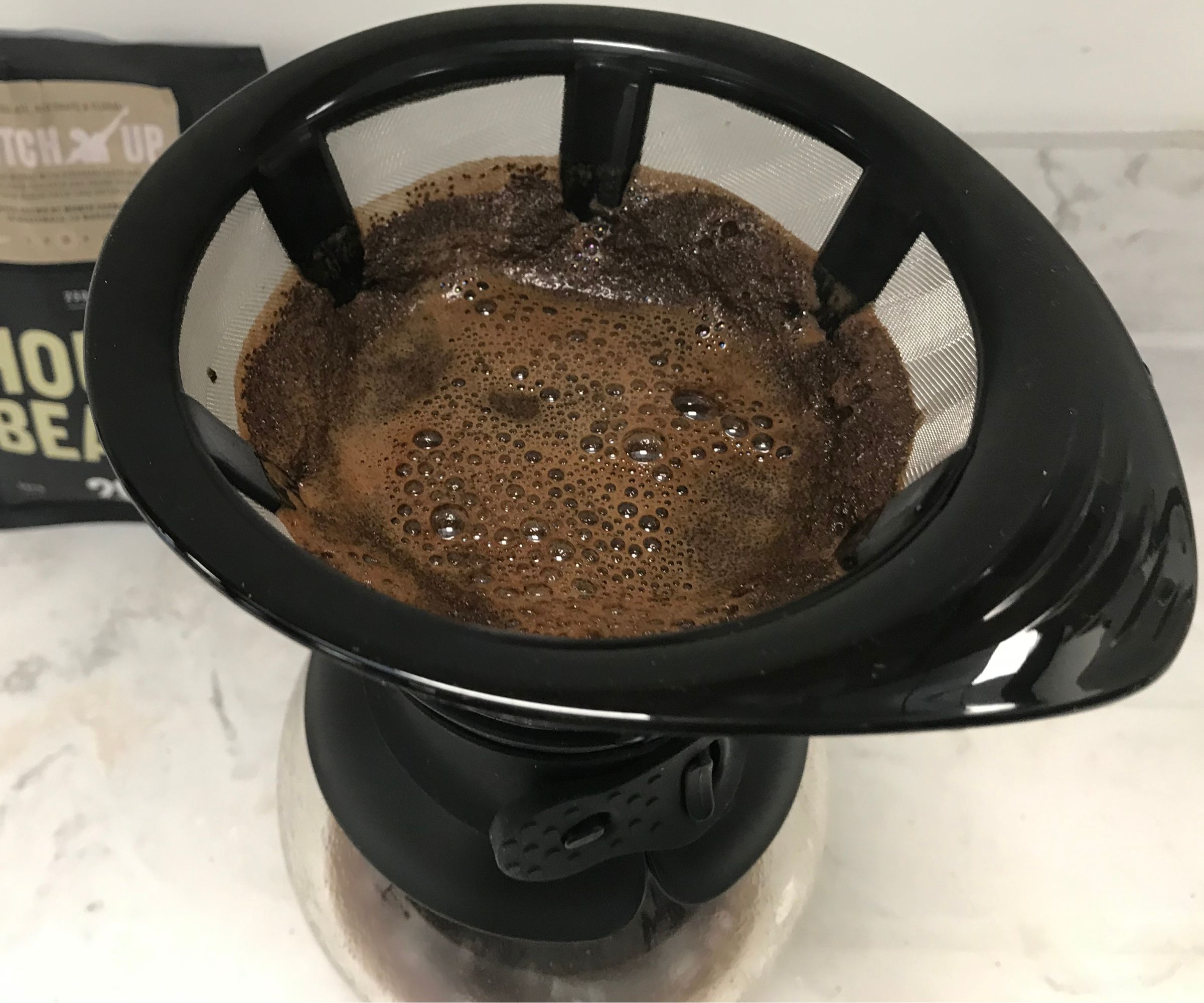
Given the Bodum’s size, I wanted to give it a test on some bigger brewing sizes. The carafe is supposed to make enough for three cups of coffee, so that’s exactly what I tried.
As with the single-serve if, I added some scoops of coffee, poured over my 190-degree water, and let it drip into the carafe. This was a slower process, requiring just over four minutes before my carafe was full, but the coffee sitting in the Bodum looked good. I couldn’t wait to give it a taste test.
The Bodum is definitely better in bigger quantities. This coffee was delicious and balanced, and the notes were clear, bright, and distinct. My only criticism is that the glass carafe let my coffee cool by a lot. After pouring water in and waiting for it to brew, I really needed to get drinking before the coffee got cold. It’s no surprise because the walls are thin and glass isn’t known for its insulating properties.
Cleaning
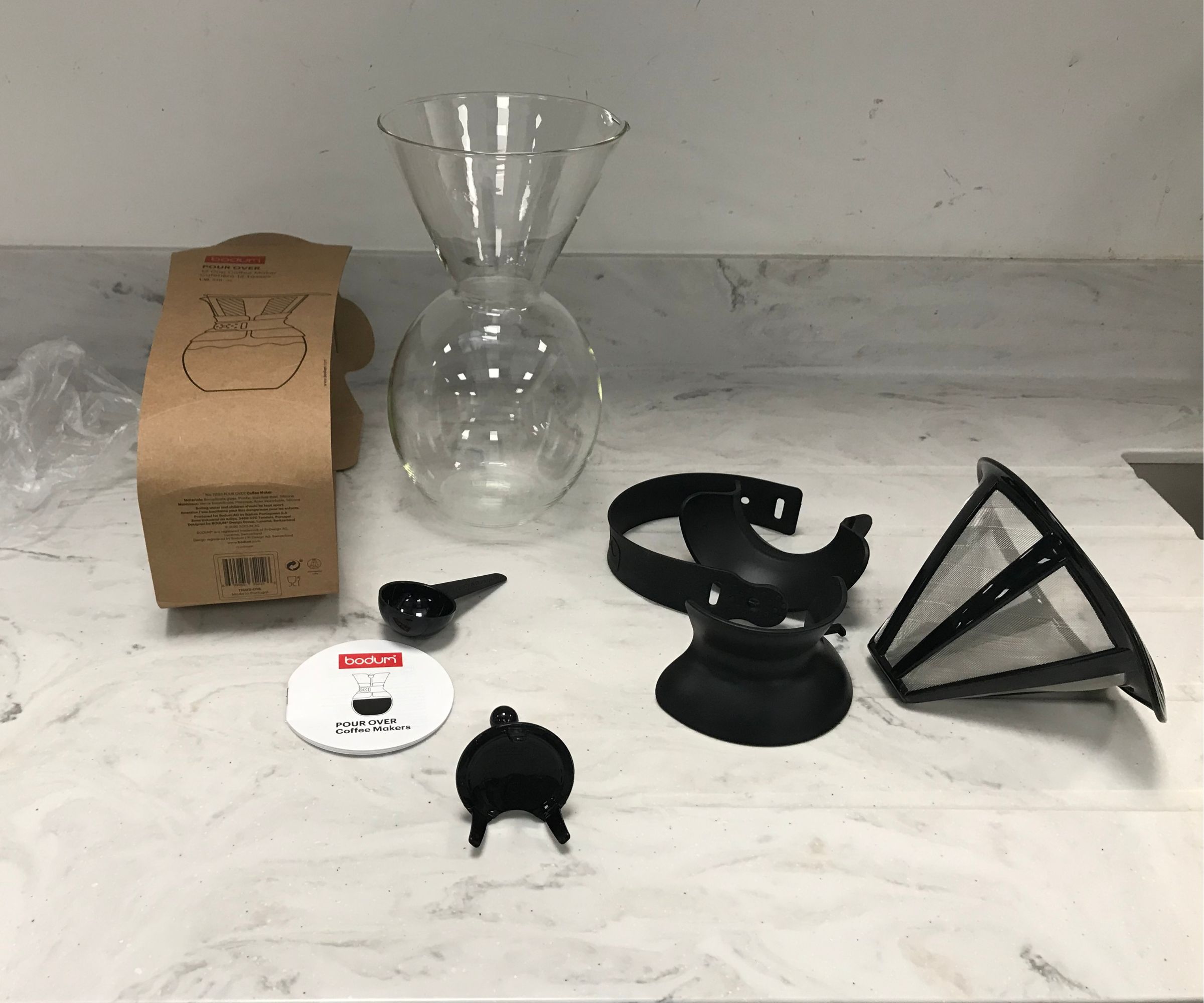
If you like to steer clear of the sink, you're in luck. The Bodum is dishwasher safe, so you can load the parts in and leave your dishwasher to do its job. However, I like to clean my coffee makers by hand, so that I know a really thorough job has been done.
The filter funnel and filter were easy to clean, because these lifted straight out of the Bodum. I had no problem swilling my coffee out of the carafe and sticking a sponge inside. We have dish wands like these from Walmart. If you get the Bodum, I’d recommend investing in one of these. The neck of the Bodum will be too tight for you to reach into for a really good clean, which could result in staining and stale coffee flavors, even though borosilicate glass is usually good for not resisting this.
How does it rate online?

You won’t be surprised to hear that this is a hit amongst reviewers. I’m puzzled as to why it’s not established a better reputation to be quite honest with you; it's still a relative secret amongst coffee enthusiasts. I’d argue that it’s as good as a Chemex, just without the price (and leather) tag.
People loved the style of the Bodum, praising it for its aesthetics in equal amounts to its performance. The handle is also popular, especially since it doesn’t have the leather tag that the Chemex does, making it suitable for vegans.
Almost everyone who owned one of these talked about the capacity. It’s obviously a driving factor for many of the purchases, so if you live in a large home, this is a good option.
As expected, I found a few upset owners who had cracked or smashed theirs. The glass is really fragile so if you’re clumsy, you might want to give this a miss. Even though the carafe is dishwasher friendly, people advised against it, since the insides won’t get a good clean in your average dishwasher. It’s better to hand wash.
How does it compare?
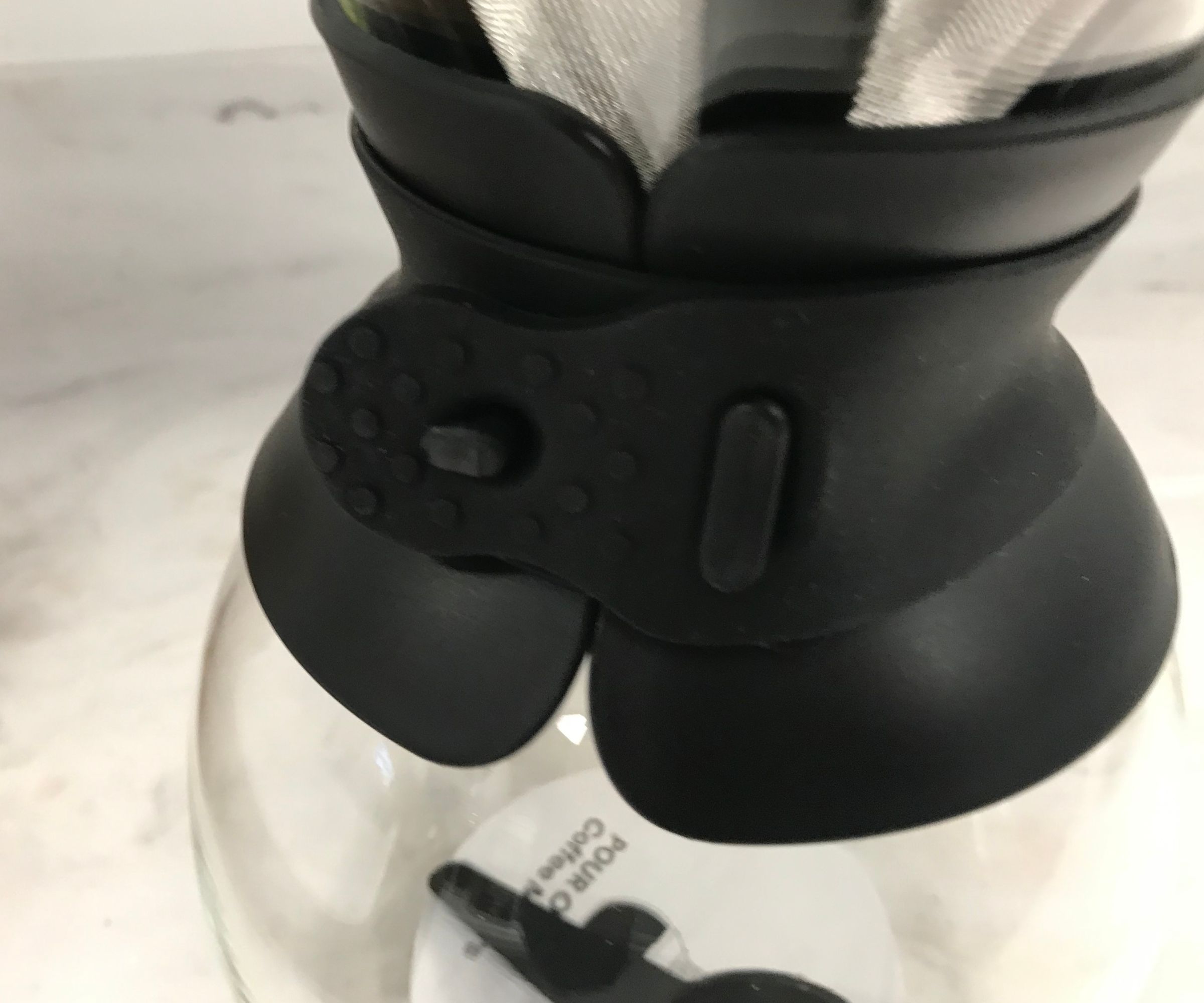
There’s no surprises for who the Bodum’s biggest competition is: the Chemex (here it is at Walmart). The two could be siblings. They look similar, are made from the same materials, and are best suited to big-batch brewing.
The Chemex’s borosilicate glass is ever so slightly thicker, so if you’re after quality, it’s a better bet. However, if you’re vegan or vegetarian, the Chemex comes with a leather tag. The tag is really only decorative, which can be frustrating for some people. I wanted to buy one of these for a vegan coffee enthusiast friend and ended up opting for the Bodum. She was delighted with it.
The Chemex can be as much as double the price of the Bodum and it still doesn't come with a permanent filter, so there's a lot that goes in the Bodum's favor. The bottom line is this, if you want the boxy, iconic batch brewer, go for the Chemex. If you’re looking for vegan-friendly value, you won’t lose anything by opting for the Bodum.
Should you buy it?
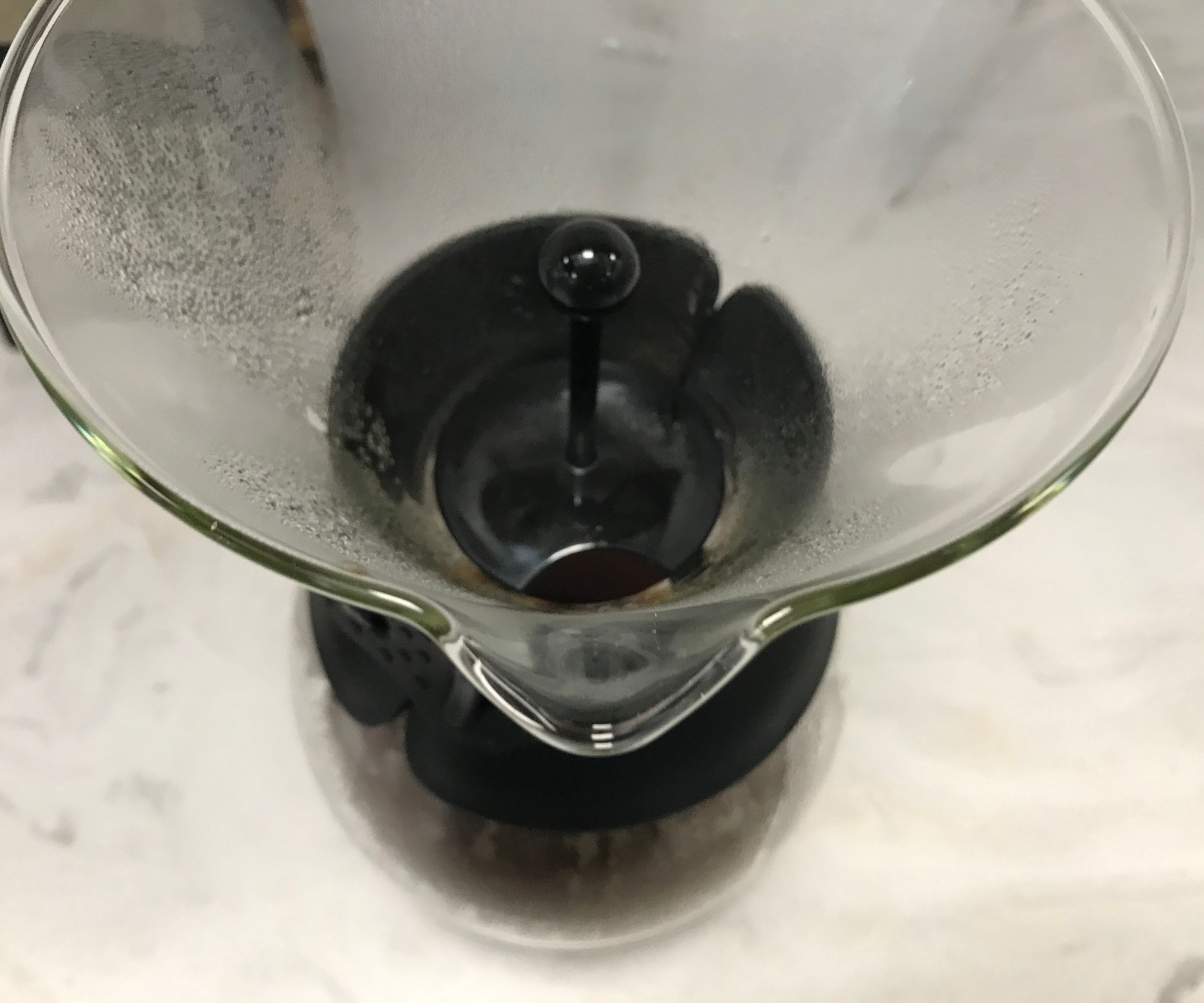
I’ll admit that I was skeptical of Bodum’s size and price tag at first, but I’m sold. If you’ll be brewing more than one cup of pour-over coffee, you can’t go wrong with this. It makes a delicious cup of coffee (with a couple of cups to spare) and you can enjoy all the Chemex aesthetics without having to pay double the price.
How we test
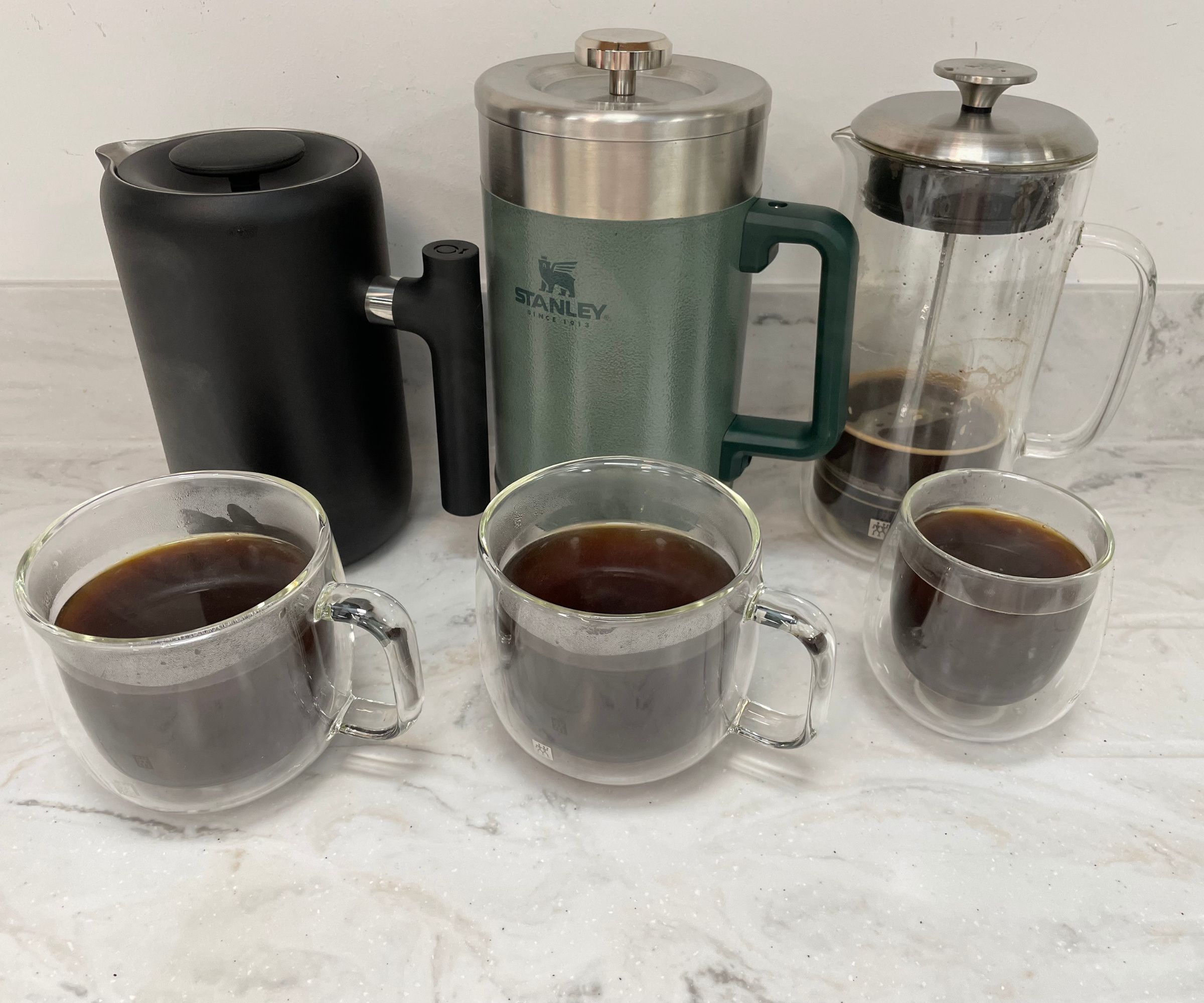
We put a lot of thought into how we test coffee makers at Homes & Gardens. We start with research. Our team of experts is always on the lookout for the latest and greatest coffee makers on the market. Once we’ve found one that we think you might like, we call it into our test kitchen where we assess it on everything.
We make notes on unboxing, first impressions, cleaning, storage, and value. Most importantly, we test the coffee. Pour-over tests are some of the most straightforward because we start by brewing a single cup of coffee. We'll test the temperature, time, and flavor profile until we're satisfied. Then, we'll push the limits of the coffee maker, brewing a full-capacity carafe to make sure that the flavors can still stand up to smaller, single brews, which is where pour-overs normally excel.
If a pour-over comes with a filter, we make sure to use that. If it doesn't we'll use both paper and metal filters, so that you get a good idea of the range of options available to you. Once we think we're happy with our tests, we'll discuss how it compares to our favorite options on the market and we'll let you know whether we think it's worth buying and who it would suit (as well as who it wouldn't suit).
If you're interested in finding out more, you can visit our page for how we test coffee makers. All the details are there.







